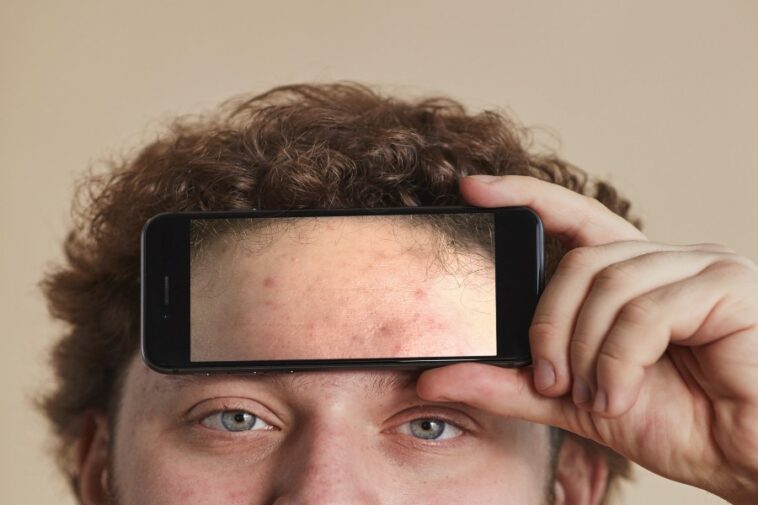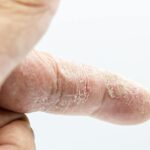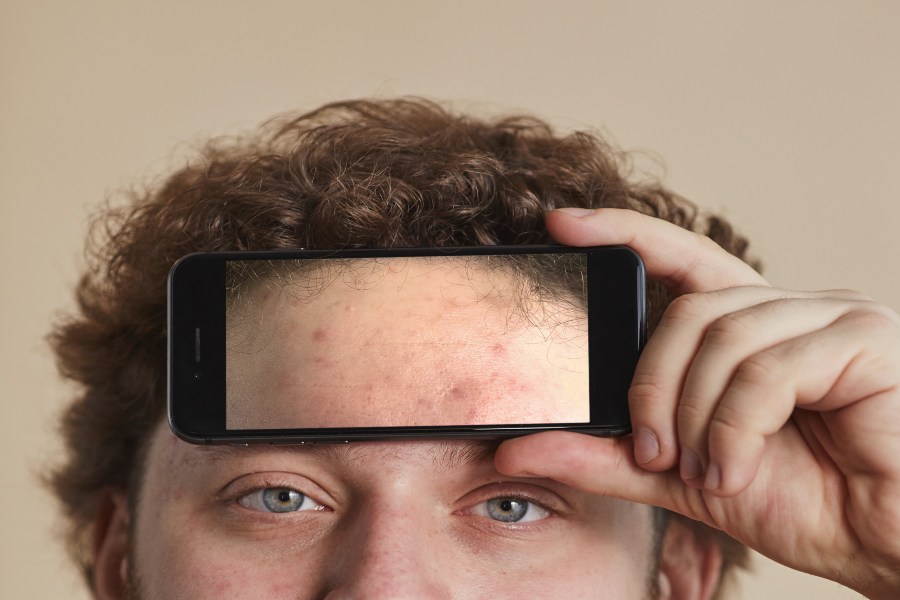The popularity of creatine as a dietary supplement in the fitness world has surged in recent years, accompanied by a growing concern: can creatine cause acne? This article delves into the intriguing link between creatine and acne, addressing the numerous anecdotal claims and scientific evidence surrounding this topic. By examining the mechanics of both creatine and acne, considering potential mechanisms, and offering practical advice, we aim to provide readers with a comprehensive understanding of whether creatine truly has a role in acne development or if it’s merely a myth.
Can Creatine Cause Acne?
The scientific evidence regarding whether creatine causes acne is inconclusive. While some anecdotal reports suggest a possible connection, no definitive link has been established. Individual factors such as genetics, skincare, and diet likely play a more significant role in acne development. Consulting with a healthcare professional is advisable for personalized advice.

Understanding Creatine
Creatine is a naturally occurring compound found primarily in the muscles and the brain, and it plays a crucial role in the body’s energy production system. This organic acid is synthesized in small quantities in the liver, kidney, and pancreas and can also be obtained through dietary sources such as red meat and fish. However, it has gained immense popularity in the fitness and sports world as a dietary supplement. Creatine supplements come in various forms, with creatine monohydrate being the most common and extensively researched.
Creatine’s primary function is to aid in the production of adenosine triphosphate (ATP), a molecule that provides energy for various cellular processes, especially during short bursts of intense physical activity. When you engage in activities like weightlifting or sprinting, your muscles rely on ATP for quick bursts of energy. Creatine helps replenish ATP stores, allowing for increased energy availability and potentially enhancing performance during high-intensity workouts.
Athletes and fitness enthusiasts commonly turn to creatine supplementation for its potential benefits, including improved muscular strength, increased muscle mass, and enhanced exercise performance. While creatine is best known for its role in sports nutrition, recent research suggests it may have other health benefits, such as cognitive enhancement and potential therapeutic applications for certain medical conditions. Understanding the mechanisms behind creatine’s actions in the body is essential for evaluating its impact on various aspects of health and fitness.
Benefits Of Creatine Supplementation
Creatine supplementation offers a range of potential benefits, particularly for athletes, bodybuilders, and individuals engaged in high-intensity physical activities. Here are some of the key advantages:
- Improved Muscle Performance: Creatine is known for its ability to enhance muscular performance, particularly during short bursts of intense exercise. It helps increase the availability of ATP, the body’s primary energy source, which can lead to improved strength, power, and endurance.
- Increased Muscle Mass: Creatine supplementation can lead to an increase in muscle mass, often due to an increase in water content within muscle cells. Over time, this can contribute to muscle growth, especially when combined with resistance training.
- Enhanced Exercise Capacity: Creatine can delay the onset of fatigue during high-intensity activities, allowing individuals to push harder and longer during their workouts. This can be particularly beneficial for athletes and those looking to improve their athletic performance.
- Recovery and Reduced Muscle Damage: Some studies suggest that creatine may help reduce muscle damage and inflammation after intense exercise. This can lead to faster recovery between workouts.
- Cognitive Benefits: Emerging research has indicated that creatine may have cognitive-enhancing properties, potentially improving memory, attention, and mental clarity. This makes it of interest not only to athletes but also to individuals seeking cognitive performance enhancement.
- Therapeutic Applications: Creatine has shown promise in certain medical conditions, such as neuromuscular disorders like muscular dystrophy. It can help improve muscle strength and function in these cases.
- Metabolic Health: Some studies suggest that creatine supplementation may have positive effects on various aspects of metabolic health, including blood sugar control and insulin sensitivity.
- Aging and Bone Health: There is ongoing research exploring the potential benefits of creatine for older adults, including its impact on age-related muscle loss (sarcopenia) and bone health.
The Possible Mechanisms
Understanding the potential mechanisms that could link creatine to acne requires examining the physiological effects of creatine supplementation and how they might impact skin health. While research in this area is ongoing and inconclusive, several theories have been proposed:
- Hormonal Imbalances: Creatine supplementation can influence hormone levels, particularly testosterone and dihydrotestosterone (DHT). Increased testosterone levels, in particular, have been associated with acne development. Some suggest that creatine may elevate testosterone levels, potentially contributing to acne in susceptible individuals.
- Increased Oil Production: Acne often involves the overproduction of sebum (skin oil) and the subsequent clogging of hair follicles. Creatine may theoretically stimulate the sebaceous glands, leading to increased sebum production and a greater likelihood of developing acne, especially in those with oily skin.
- Inflammatory Responses: Acne is an inflammatory skin condition. Some researchers speculate that creatine might promote inflammation in the body, which could exacerbate acne or trigger inflammatory acne lesions.
- Genetic and Individual Differences: It’s essential to recognize that not everyone responds to creatine in the same way. Genetic factors and individual variations in hormonal balance, skin type, and sensitivity to dietary supplements may play a significant role in whether or not creatine supplementation leads to acne.
- Diet and Hydration: The overall diet and hydration status of an individual can also influence skin health. Consuming a balanced diet and staying well-hydrated can help mitigate the potential adverse effects of creatine supplementation on the skin.
- Skincare Practices: Personal skincare routines, including cleansing and moisturizing, can impact the likelihood of acne development. Proper skincare practices are essential, regardless of creatine supplementation.
Tips For Minimizing Acne Risk While Using Creatine
While the connection between creatine and acne remains inconclusive, individuals concerned about the potential risk can take several proactive steps to minimize the likelihood of acne development while using creatine:
- Consult a Healthcare Professional: Before starting any dietary supplement, including creatine, it’s advisable to consult with a healthcare provider or dermatologist. They can provide personalized guidance based on your health history and skin type.
- Proper Dosage and Timing: Follow the recommended dosage instructions for creatine supplementation, typically around 3-5 grams per day. Avoid excessive or prolonged use, as higher doses may increase the risk of side effects.
- Stay Hydrated: Creatine can cause water retention within muscle cells. To counteract this, maintain adequate hydration by drinking plenty of water throughout the day. Proper hydration is not only essential for overall health but can also help prevent skin issues.
- Balanced Diet: Ensure your diet is well-balanced and includes a variety of nutrients. A diet rich in fruits, vegetables, lean proteins, and healthy fats can support overall skin health. Avoid excessive consumption of high-sugar and high-glycemic foods, which may exacerbate acne.
- Maintain Good Skincare Habits: Stick to a consistent skincare routine, including gentle cleansing, moisturizing, and using products suitable for your skin type. Avoid harsh or abrasive skincare products that can irritate the skin.
- Clean Workout Gear: If you use shared workout equipment, make sure to clean it thoroughly before use to reduce the risk of bacterial contamination on the skin.
- Monitor Your Skin: Pay close attention to any changes in your skin while using creatine. If you notice unusual breakouts or skin issues, consult with a dermatologist to rule out other potential causes and explore treatment options.
- Limit Other Potential Acne Triggers: Be mindful of other factors that can contribute to acne, such as stress, inadequate sleep, and poor dietary choices. Managing stress through relaxation techniques and getting enough sleep can support overall skin health.
- Consider Alternatives: If you have persistent concerns about acne while using creatine, you might explore alternative supplements or adjust your fitness and nutrition regimen to achieve your goals without creatine.
Conclusion
In conclusion, the link between creatine supplementation and acne remains uncertain, with evidence inconclusive and largely anecdotal. While some individuals may report acne flare-ups coinciding with creatine use, others do not experience such issues. To make an informed decision, it’s essential to consult with a healthcare professional, maintain proper hydration, practice good skin care, and monitor your skin’s response. Ultimately, individual factors, including genetics and lifestyle, play a significant role in acne development, and creatine alone may not be the sole cause.
FAQs
Does Creatine Directly Cause Acne?
No, there is no direct causal link between creatine supplementation and acne. The relationship between creatine and acne is complex and not well-established.
Can I Use Creatine If I Have Acne-Prone Skin?
Yes, many individuals with acne-prone skin use creatine without experiencing issues. However, it’s essential to monitor your skin’s response and maintain good skincare practices.
Will Drinking More Water While Taking Creatine Prevent Acne?
Staying well-hydrated is crucial when using creatine to minimize potential water retention, but it may not necessarily prevent acne. Proper hydration supports overall skin health.
Are There Creatine Alternatives To Avoid Acne Risk?
Some individuals opt for creatine alternatives like beta-alanine or branched-chain amino acids if they are concerned about acne risk. These supplements have different mechanisms and may not impact the skin in the same way.
Can Creatine Benefit My Workouts Despite Concerns About Acne?
Creatine is known to enhance athletic performance, so it can still provide workout benefits for many individuals. To mitigate any potential acne concerns, follow recommended dosages and maintain proper skin care and hydration.





